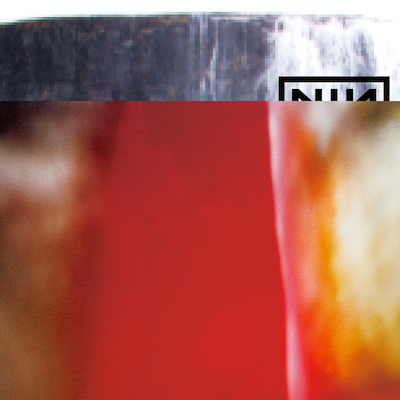In September of 1999, under the Nine Inch Nails moniker, Trent Reznor unleashed his newest musical effort upon the world. From the steady crawl toward a hail of guitars in opener “Somewhat Damaged,” to the delicate beauty of tracks like “The Frail,” there was an artistic balance found in The Fragile that Reznor hasn’t quite recreated since. It’s the Gen-X equivalent of The Wall (sorry, Mellon Collie), a double album fully realized in theme, sound, and presentation — both a reflection on the decade of rock music that preceded it and a solidification of Reznor’s standing as a force to be reckoned with.
While The Downward Spiral‘s rock and electronic aspects were often very clearly defined, crashing into each other as they fought for dominance from song to song, the world of The Fragile featured a much more fluid blending of the two elements. Throughout the record, it’s often difficult to tell exactly what is synthetic and what is organic. And unlike the deafening assault of noise throughout its predecessor, The Fragile found just as much comfort in choosing to stay quiet, resorting to pianos and strings as often as it did guitars. There’s no doubting the intention behind this transition. After all, The Fragile is a different type of record, a sort of aftermath of the war waged within its predecessor. It is anger turned to desperation — a final exhausted battle cry before Reznor is swallowed whole.
This change in tone is not only a product of Reznor’s tendency to evolve with every album release; it is also just as much a product of its time. The 90s era of music began with an unquenchable anger, a youthful frustration with everything wrong in the world. In many of the rock records throughout the decade, there was a certain hope in the hopelessness — an anger that felt like a call to arms, an honest desire to fix what was broken. But by 1999, President Clinton was deep into the Lewinsky scandal, news of the Columbine Massacre dominated the airwaves, and the entire world was paralyzed by fear of the Y2K Bug. Nothing had changed. If anything, things had gotten worse.
Given this context, it’s fitting that Reznor, one of the few survivors of the era, finished the decade with an album that was, more than anything else, a soundtrack of exhaustion and apathy. The frustration toward various enemies (religion, money, sex, government) that Reznor made his name on was traded in for melancholy, introspection, and paranoia. The record is as much a reaction to everything in the rock and cultural climate that preceded it, as it is a progression of the band’s sound. The war of the ’90s had been lost on The Fragile. It’s a tragic and fitting end to a time in music we haven’t really heard from since.
There’s another aspect of the time in which the album was born that should not be overlooked. Consider the situation: an artist, backed by a major label, coming off of a wildly successful breakthrough record. A huge studio budget and virtually no deadline to create a follow-up. Reznor and producer Alan Moulder locked themselves in a studio for two years, surrounded by instruments, and simply created. These days, with the major labels as far down in the hole as they are, it’s hard to imagine any artist, in particular one that produces rock music, ever again being afforded the opportunity Reznor was given in the creation of the record. It’s another large contributor of what makes the record so special.
There is no doubt this long gestation period is why it’s such a leviathan of an album — a sprawling epic that somehow simultaneously and successfully also manages to have a deep sense of intimacy. Just as quickly as Reznor is surrounded by towering crescendos of noise, he’s alone again, in a place so private that the very act of listening feels voyeuristic. By the end of its hour-forty runtime, through repeating motifs and densely layered soundscapes, you’d be hard pressed not to believe Reznor relinquished his entire being to the record.
So why the mixed reception upon release? It’s impossible to reflect on The Fragile without mentioning this aspect — both the critical and commercial responses to the record at the time were sharply divided. Spin christened the work as their Album Of The Year. Pitchfork Media gave it a two out of ten. And the amount of copies sold reached nowhere near the 4 million plus units The Downward Spiral moved after its release. It’s the inevitable problem that comes with an album so dense, in particular one that follows a band’s biggest record. It is a work that must be allowed to grow on its listener — one that may initially sound like a betrayal of the aesthetic Reznor previously established, but with time, reveals in its intricacies and song craft a vital progression of the artist’s sound.
It’s evident, and unfortunate, that The Fragile‘s reception has informed the band’s releases since. The record’s closest sibling, 2005’s With Teeth, is Reznor’s simplest work yet, highlighting his pop sensibilities while completely ignoring his talent for atmosphere and layering. In fact, nothing in the recent Nine Inch Nails catalogue has managed to hit the sweet spot between art rock and pop that both The Downward Spiral and The Fragile seemingly achieved with such ease. Arguably the apex of the band’s evolution, The Fragile is a masterwork, equal to and in some aspects better than its predecessor, and a triumph of the rock genre.

